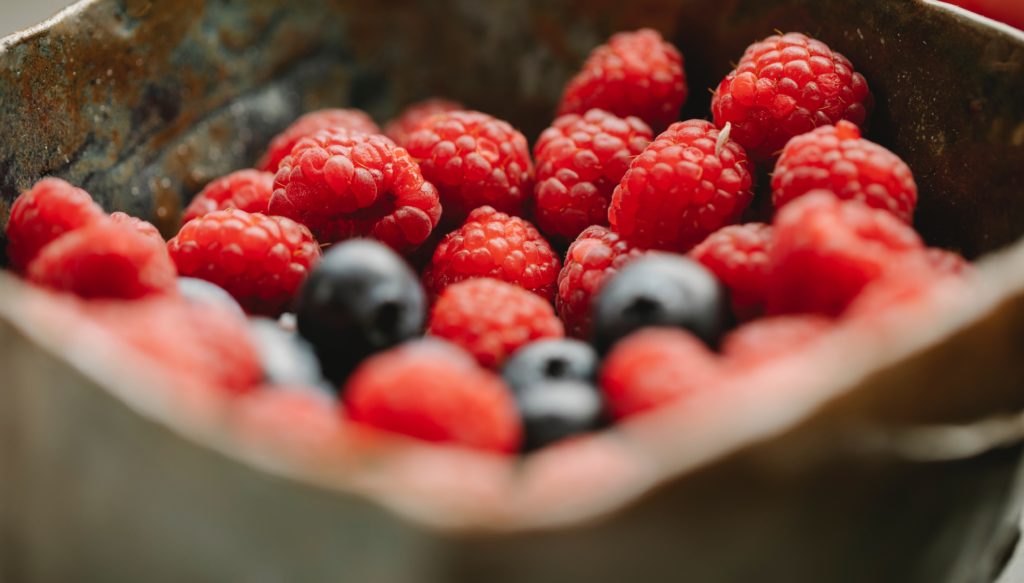
We are used to the word “antioxidant”, although it is more common in the beauty industry. As it turned out, not only outside, but also inside, antioxidants should work. In our material, we understand what exactly they do and what products they contain.
An antioxidant is a special compound that occurs naturally and is found in vitamins and minerals. They are designed to fight and successfully remove free radicals from the body, which are a natural by-product of turning food into energy. But there is another category of radicals that enter our body from the outside, for example, environmental toxins that fill our air, water and food.
Antioxidant basically means anti-oxidation. It fights free radicals by safely removing them from the body, aiding our DNA repair process and keeping cells healthy. We find it easiest to consume antioxidants in their natural form through food, says nutritionist Isabelle K. Smith.
We figured out in detail what natural antioxidants exist and how they can and should be properly added to your diet.
Beta carotene
We all know the name and, for sure, the first vegetable that came to your mind when you heard about this antioxidant is carrots. And right! It is the richest source of beta-carotene, which is converted into vitamin A2, which, in turn, is very useful for vision. Surprisingly, if the carrot is cut lengthwise, it will look like an eye, how do you like such an associative series? In any case, if you have vision problems or you just want to maintain it, then carrots, preferably raw, must be in your diet. By the way, it can serve as an excellent snack between main meals, and with a dip, for example, hummus or Greek yogurt, carrots are much tastier.
Vitamin E
Nutritionist Lisa Moskowitz strongly recommends taking vitamin E. “This fat-soluble antioxidant stops the production of cell-damaging oxidative stress in the body, which can lead to chronic diseases such as heart disease. Vitamin E can also support your immune system.” You can find this valuable component in sunflower oil, nuts and seeds. You should also pay attention to almonds (as a healthy snack) and avocados, from which you can make an amazing snack – guacamole. And with antioxidants, recharge and satisfy your inner culinary gourmet.
Vitamin C
We have heard a lot about it and it seems that vitamin C is a universal fighter. This is true! In addition to boosting immunity, it is a powerful antioxidant and protects the body from free radical molecules, plus, the list of products where you can find it is long. But there is another nice thing: Vitamin C is also in cocoa, so a piece of chocolate with a high concentration of cocoa will be the perfect antioxidant for your body.
Resveratrol
“This powerful polyphenol has tons of health benefits. These include protecting against heart disease, lowering cholesterol, improving skin firmness, and even helping lower blood sugar or insulin levels,” says Moskowitz. Resveratrol is a rare component and can be found in small amounts in the skin of red grapes, respectively, and in red wine, as well as in blueberries and peanuts.
Selenium
This trace element plays an important role in the functioning of the immune system, DNA synthesis, metabolism, and it also supports the health of the thyroid gland. You can find it in Brazil nuts, it is in this product that it contains so much that with the help of one nut you can provide the daily requirement of seline. But not the Brazil nut alone, this antioxidant is also found in chicken, beef, and fish.
CoQ10
Coenzyme Q10 is an antioxidant naturally produced by our bodies and is vital for cell growth and repair. Nutritionist Moskowitz says that “Levels naturally decline with age, and decreased circulating CoQ10 may increase susceptibility to oxidative stress, especially due to sun damage.” Therefore, the best sources of CoQ10 are organ meats, certain meats such as pork or chicken, oily fish including trout and herring, spinach, strawberries and lentils.
Catechins
Catechins are types of flavonoids that have strong antioxidant properties. One of the most studied catechins is EGCG (epigallocatechin gallate), which is found naturally in teas such as green, black, and white. So do not neglect to drink a cup of tea once again.
Lipocene
This antioxidant is aimed at fighting inflammation within the body, is good for the heart, and is great at taking care of skin health. This miracle micronutrient can be found in tomatoes, as well as red and pink fruits.
Lutein
Moskowitz says lutein will help improve eye and skin health. This antioxidant can protect the skin from sun damage and improve eyesight. Ideal sources of lutein are spinach, kiwi, grapes, zucchini, and various types of squash.
Chlorogenic acid
The name is rather atypical, but still, it has a place to be on this list. This acid is found in coffee and promotes healthy heart function. And although there is a sufficient amount of chlorogenic acid in the morning cup of coffee, nutritionists do not recommend to “load” it heavily. An alternative and no less rich source are artichokes. Bake them in the oven and get your rightful dose of chlorogenic acid.
This is how you can simply and tastefully replenish your body’s supply of antioxidants and prepare for the upcoming spring, which will come in seven days.



